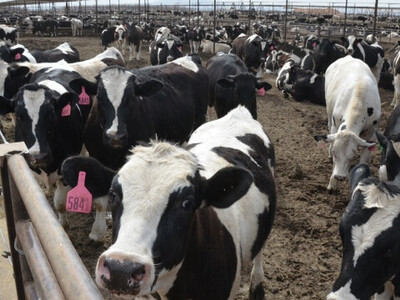Road Kill, Not a Wolf & Congress on Death Tax
Road Kill, Not a Wolf & Congress on Death Tax plus Food Forethought. I’m Greg Martin with today’s Northwest Report.
An Idaho State wildlife official says there is no clear evidence a dog was attacked by wolves. Idaho Fish and Game official Josh Stanley says he could find no evidence of wolf tracks in the snow where the domestic dog was killed Wednesday about a mile north of Wallace. Stanley tracked a 100-yard radius around the home where the attack took place and found tracks more closely resembling dogs or coyotes.
Congress got back to work yesterday and Colin Woodall with the National Cattlemen’s Beef Association. And among all of the important topics to move on - NCBA is going to focus on what's known as the death tax - Woodall says
WOODALL: If we don’t get action on this by the end of the year we’re going to put a lot of farmers and ranchers in a bad position in regard to their estates. So we’re already having conversations with leadership and the committees to try to figure out exactly what they think they can accomplish.
Also out of Idaho...some new legislation could make it finders, keepers when it comes to roadkill. Currently any big game that is run over by a vehicle is the property of the state but this new legislation would make it the person who finds it. One point though...it has to be an “accidental” collision.
Now with today’s Food Forethought, here’s Lacy Gray.
If you’re thinking of installing solar panels on your house in an attempt to be more “green” and to save yourself some money when it comes to utility bills, you might want to check out your neighborhood covenant laws. You might not have the “right” to make these types of changes to your own home. Some people are finding this out the hard and costly way. In spite of the large and growing support for renewable energy and even the encouragement of renewable energy development at the state and federal level many homeowner associations restrict or downright prohibit installing a solar energy system. Being that solar rights are not the clear cut issue you would think, some states have had to implement solar access and easement laws, designed to protect a consumer’s right to install and operate solar energy systems on their homes. So while installing solar panels on your home seems like a “no-brainer” when it comes to an energy choice, it would serve you well to do your homework first on your local community rules. It could very well save you a whole lot of time, money, and emotional upheaval in the long run.
Thanks Lacy. That’s today’s Northwest Report. I’m Greg Martin on the Ag Information Network.















